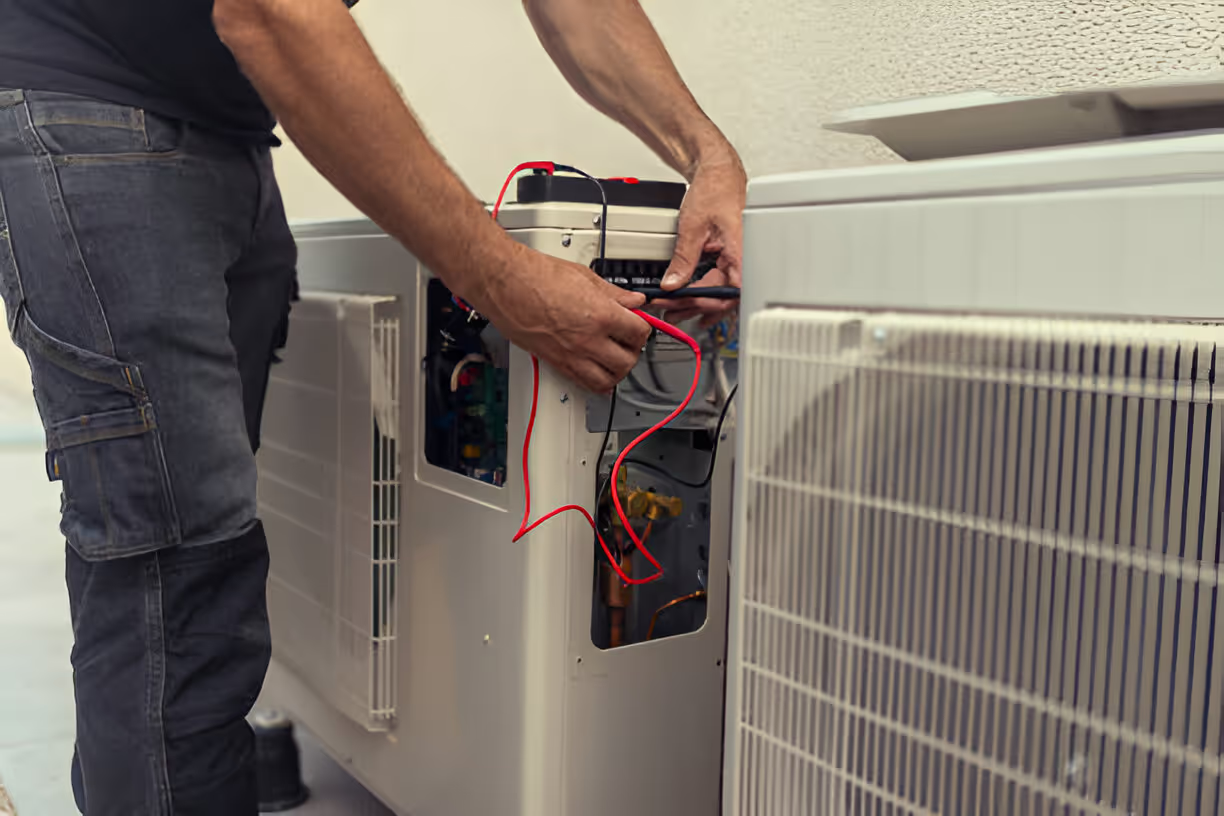Heat Pump Installation in Glen Cove, NY
Installing a heat pump is one of the most effective ways for Glen Cove homeowners and businesses to get reliable year-round heating and cooling while lowering energy use. This page explains what to expect from professional heat pump installation in Glen Cove, NY: from the initial consultation and load calculations to permitting, site preparation, commissioning, timelines, and the differences between residential and commercial projects. If you are evaluating options, this guide helps you understand the technical steps and local considerations so you can make an informed decision.

Why a heat pump makes sense in Glen Cove, NY
Glen Cove sits on Long Island’s North Shore with humid summers, cold coastal winters, and high seasonal humidity. A modern heat pump delivers efficient cooling during hot months and efficient heating through the shoulder seasons. Key local advantages include:
- Year-round comfort and dehumidification suited to Glen Cove summers.
- Improved efficiency compared with older electric resistance heat or aging oil systems common in the area.
- Compatibility with existing ductwork or as a ductless mini-split solution for older or historic homes where ductwork is impractical.
- Potential eligibility for federal, state, and local incentives; some programs on Long Island offer rebates that reduce installation cost, sometimes calculated per ton of capacity.
Common heat pump installation types and common issues in Glen Cove
Typical installations in Glen Cove fall into several categories:
- Ducted split systems for homes with existing forced-air systems.
- Ductless mini-splits for additions, older houses, or rooms without ducts.
- Multi-zone systems and VRF for larger residential or commercial properties.
- Commercial rooftop or packaged units for businesses.
Common local issues installers encounter:
- Salt air corrosion on outdoor units near the shoreline, requiring corrosion-resistant components or protective coatings.
- Limited outdoor unit placement due to narrow lots, setbacks, or HOA and historic district restrictions.
- Undersized systems because of previous rule-of-thumb sizing rather than proper calculations, leading to short cycling or insufficient capacity.
- Aging ductwork with leaks or poor insulation that reduce system performance after installation.
Initial consultation and load calculations
A correct installation starts with a professional on-site assessment and a Manual J load calculation tailored for Glen Cove homes or buildings. The assessment includes:
- Measuring square footage, ceiling heights, insulation levels, window types, and orientation.
- Evaluating existing heating and cooling systems and ductwork condition.
- Identifying thermal leaks, moisture issues, and any envelope upgrades that could reduce required capacity.
Accurate load calculations prevent common problems like oversized or undersized units, improve efficiency, and extend equipment life.
Equipment selection guidance
Choosing the right heat pump depends on load, budget, and site constraints:
- Capacity and efficiency: Look at SEER, HSPF, and COP ratings. Higher efficiency yields bigger energy savings, especially for homes with long cooling seasons.
- Ducted vs ductless: Ducted systems work well where existing ducts are in good condition. Ductless mini-splits are ideal for room-by-room control, additions, and historic Glen Cove homes without ducts.
- Cold-climate models: For reliable heating on colder winter nights, choose models rated to maintain capacity at lower outdoor temperatures.
- Corrosion protection: For coastal properties, choose units with coated coils and stainless components or plan for protective measures.
Permitting and site preparation in Glen Cove
Permits are typically required for HVAC equipment installation in Nassau County and the City of Glen Cove. Permit and site considerations include:
- Local building department requirements for electrical, refrigeration, and structural work.
- Possible historic district review or HOA approval for visible outdoor units.
- Required setbacks, pad mounting, or rooftop mounting specifics.
- Electrical service evaluation to ensure panel capacity and proper disconnects are installed.
Allow time for permit review and approvals when planning your project timeline.
Professional installation steps
A professional installation follows a clear workflow:
- Finalize equipment selection and obtain permits.
- Prepare the site: set concrete pad, mount brackets, or prepare rooftop supports; ensure proper clearances for airflow and service access.
- Install outdoor and indoor units, line sets, condensate drains, and electrical connections to code.
- Connect thermostat and control systems, including zoning or smart thermostat integration where applicable.
- Evacuate and charge the refrigerant circuit to manufacturer specifications.
- Seal and insulate ductwork or refrigerant lines as required.
Technicians should follow manufacturer startup checklists and local code requirements throughout installation.
Commissioning and performance testing
Commissioning verifies the system operates at design performance:
- Check refrigerant charge, superheat/subcooling, and pressures.
- Measure airflow and temperature split to confirm proper distribution.
- Verify electrical loads and that the system starts and stops correctly.
- Confirm defrost cycles, reversing valve operation, and backup heat staging.
- Perform leak checks and ensure condensate drainage is effective.
- Measure system COP and compare to expected performance.
Detailed commissioning documents provide confidence that the heat pump will meet the home or building’s comfort needs.
Typical project timelines
Timelines vary by scope and permitting:
- Residential single-zone installations: often completed in 1 to 3 days once equipment is on site and permits are approved.
- Ducted conversions or system replacements requiring ductwork repair: 2 to 5 days.
- Multi-zone or commercial projects: several days to multiple weeks for installation plus additional time for engineering, permits, and inspections.
- Permit turnaround in Glen Cove and Nassau County can add several days to a few weeks depending on complexity.
Plan for seasonal lead times for equipment, especially high-efficiency or specialty models.
Residential vs commercial considerations
Residential projects prioritize quiet operation, aesthetics, and sometimes limited outdoor space. Commercial installations focus on capacity, redundancy, zoning, and integration with building management systems. Commercial projects often require:
- Structural assessments for rooftop units.
- Detailed electrical coordination and larger capacity feeders.
- Professional engineering and more extensive permitting and inspections.
Benefits and maintenance advice
Installed correctly, a heat pump provides efficient heating and cooling in one system, improved humidity control, and lower operating costs compared with many older systems. To protect performance:
- Schedule annual maintenance including refrigerant and airflow checks.
- Replace or clean filters regularly and keep outdoor units clear of debris and snow.
- Inspect for corrosion if you are near the coast and consider anti-corrosion treatments.
- Monitor for unusual noise, reduced capacity, or changes in energy use; early diagnosis prevents more costly repairs.
Proper planning, accurate load calculations, attention to Glen Cove’s coastal conditions, and thorough commissioning are the keys to a reliable heat pump installation. Professional installers who follow these steps deliver long-term comfort and efficiency for both homes and businesses in Glen Cove, NY.
Customer Testimonials
Hear directly from homeowners who trust Bobby O’s HVAC Inc. for fast response times, honest service, and lasting comfort.











